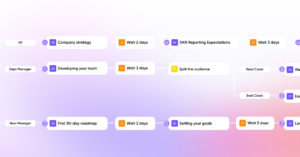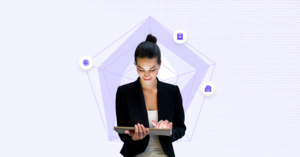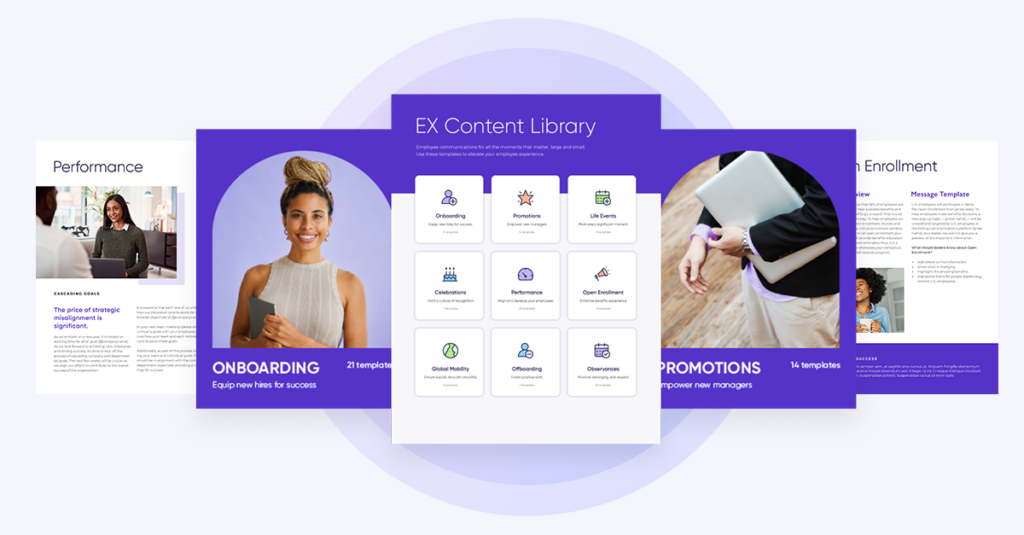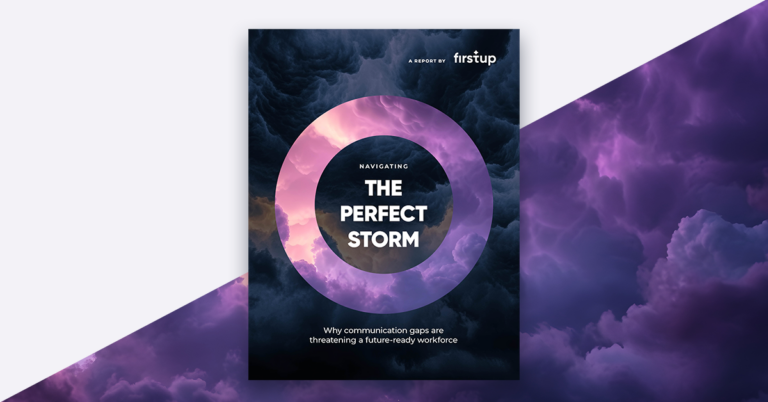Where does your company get its latest and greatest ideas from? Outside consultants? Customer surveys? Online product reviews?
Have you considered asking the people who know your product best—your employees—before turning to outside help?
You might be surprised at how many great ideas your employees have about how you can make your product or service even better than it already is. But how do you effectively harness those ideas, map out how they can be used, and encourage an ongoing conversation as new ones come in?
No matter what the contribution is, you never know when an idea from your workforce could become an amazing asset for your company. Here’s how you can encourage employees to be idea generators, and keep that innovation coming in.
Nurture a culture that promotes ideation
Your employees need to understand that leadership wants new ideas from them. Organizations that want to innovate and continually get better understand that ideation is not a one-and-done project. It’s ongoing, always, and should be welcome whenever or wherever it happens, whether on a schedule or just a random discussion that turns into an idea.
In addition, allowing for open, two-way communication between leadership and employees encourages team members to share their ideas, so if those two groups aren’t talking now, it needs to be addressed. Here are some tips on implementing a meaningful employee listening program, ASAP.
Provide the space for thinking
Work breaks, brainstorming sessions, whiteboard collaboration, “idea” lunches, online discussion boards, meetings with leadership teams to ask questions… there are tons of ways to make the space (and time) available to employees to come up with new ideas for your company.
Google, for example, allows employees time in their schedules to work on side projects, which they call the “20% time” rule. “We encourage our employees, in addition to their regular projects, to spend 20% of their time working on what they think will most benefit Google,” is what Google founders Sergey Brin and Larry Page wrote in their initial IPO letter
And while your company may not be as big as Google, or able to give them 20% of their time to do so, providing time for your employees to get together and brainstorm ideas can greatly improve your product or service.
Keep in mind that some employees won’t be comfortable discussing their ideas publicly, and that’s ok. Not everyone is. And that’s why the next point is so important.
Make it simple to submit ideas
If your employees have to jump through hoops in order to submit company ideas, chances are you won’t receive very many of them. Please, for the love of all things simple, don’t make them pass around a random Excel sheet to collect ideas!
It needs to be an easy process that can be done quickly, where employees can fill out a form on your modern intranet or communications platform and it gets routed to the right person. So whether the conversation is started in Slack, on a whiteboard, or even on napkins at lunch, provide them with a way to submit those ideas, either individually or as a team, so they can be tracked, implemented, or eliminated from consideration.
Aim to meet a goal of the company
When encouraging employees to come up with ideas, you will want them to focus on the needs of the company. Let’s say you… make sneakers. Do you really need an idea on how to build a better bathroom sink? Nope. Ideas should be dreamt up that solve a problem, fix user concerns, help the company reach specific goals, or offer a new service or product that makes your existing product better.
So whether you go to your team with a need—”We need to XYZ to get more users”—or they come up with their own ideas, keeping them aligned with the company’s goals and product will ensure that everyone is focused on the same thing and not wasting time on ideation that doesn’t benefit anyone.
Share and share alike
An idea isn’t worth much if no one knows about it other than the originator, right? So let’s not keep them to ourselves! Ideas submitted to the company should be shared and discussed when possible, especially if they are really valuable ones!

One great way to ensure that your workforce engages with submitted ideas is to gather them all up and integrate them into your internal communications. By putting them into newsletters, emails, and comms platforms, you can provide ways for other employees to comment and/or vote on the ones they think have the most potential.
Using the Firstup intelligent communication platform can show you how employees are responding to messaging and lets you gauge workforce sentiment so you can tie user engagement back to your initiatives and measure their results.
Give feedback–and lots of it
Crickets. If that is what your employees hear, time after time of submitting new ideas, they are going to stop submitting them. And you don’t want that, do you? By offering feedback, either one-on-one or in a group, you ensure that employees feel heard and valued, which serves to make the employee experience better.
Communication is everything in a workplace. If employees don’t feel like you are open to their ideas and thoughts, they will stop communicating with you.
Provide rewards for successful ideas
If you’re lucky, by encouraging your employees to generate ideas you will get lots of them in a short amount of time. Most of them might not go anywhere, but for the ones that do, and turn out to be a major benefit to the company, how about rewarding the originators of such an amazing idea?
Employees love perks, and if they know they might receive gift cards, some extra time off, company swag, free lunches, etc., they will be more apt to submit ideas on a regular basis.
Conclusion
While some companies frown upon employees voicing their ideas and feedback, encouraging your employees to do so can be one of the most valuable ways for your organization to grow and innovate. They know your company better than most and usually have a vested interest in its success. Let them be the idea generators and you never know just where those ideas will take you!
Learn how the Firstup platform can help you connect with your workforce, improve the employee experience, and drive change with one seamless digital experience. Get a demo today!
Download PDF








